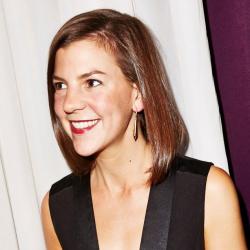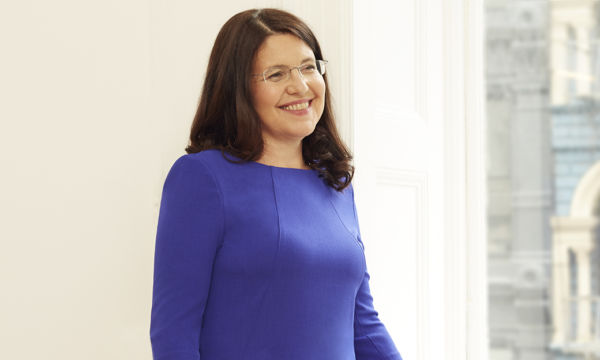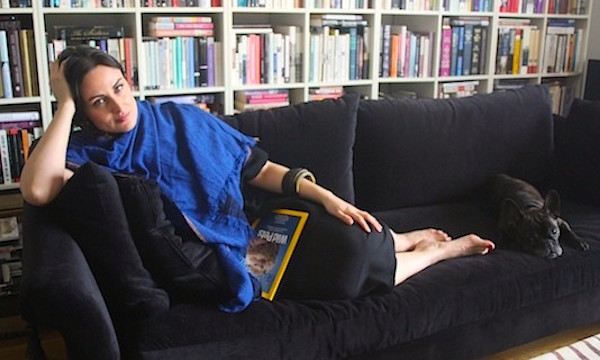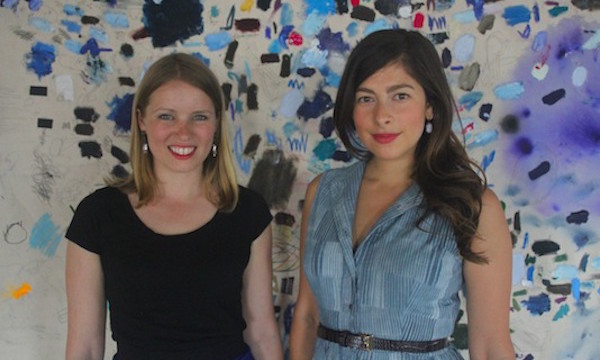How Mandy Len Catron Made a Career Out of Love Stories (Including Her Own)
July 07, 2017 | Filed in: Woman of the Week
In 2015, author Mandy Len Catron became an overnight sensation when her essay, “To Fall in Love With Anyone, Do This,” ran in the New York Times‘s “Modern Love” column. Her piece, which referenced psychologist Arthur Aron’s “36 Questions That Lead to Love,” went viral, and an equally popular TED Talk soon followed. Last month, she published her first book, How to Fall in Love With Anyone: A Memoir in Essays, about—you guessed it—love. We met up with Catron, who lives in Vancouver and teaches writing at the University of British Columbia, in New York to discuss what it’s like when your personal life becomes public—by your own design.
I BEGAN WRITING ABOUT THE NATURE OF LOVE about a year or so after my parents separated, just in a journal at first. For a while I thought it could be an essay, but I couldn’t wrap my mind around it. It occurred to me that maybe everything I thought I understood about love was wrong, and that it was all connected to these narratives of love that I had invested in, including my parents’ own love story. I decided to do some research—that’s what I was teaching my students to do, so it seemed like a logical step—and once I started, I thought, Oh my God, there’s so much material here.
WHEN I STARTED THE BOOK, I was still with Kevin, my ex. I remember telling a friend of mine, “You know, maybe I’m writing this book because I’m trying to figure out what to do with my own relationship.” And she was like, “Yeah, I thought that was the point. How did you just figure this out?”
I HAD A BLOG before Kevin and I broke up, and kept blogging through that process, and continued as I got into dating. I realized that whoever I was dating needed to be okay with me writing about love, and my own personal relationships, for an audience. The various people that I dated over that period were mostly cool with it. I think some people thought it was “interesting,” and I probably lost out on some second dates because of it. I don’t know that anybody could be more great about it than Mark, my current boyfriend. He’s a great sport. Every time I write anything about him, I run it by him, and he’s never asked me to change anything. He’s never said he felt uncomfortable. I make sure not to write about something that would be hard on the relationship. That’s not worth it to me.
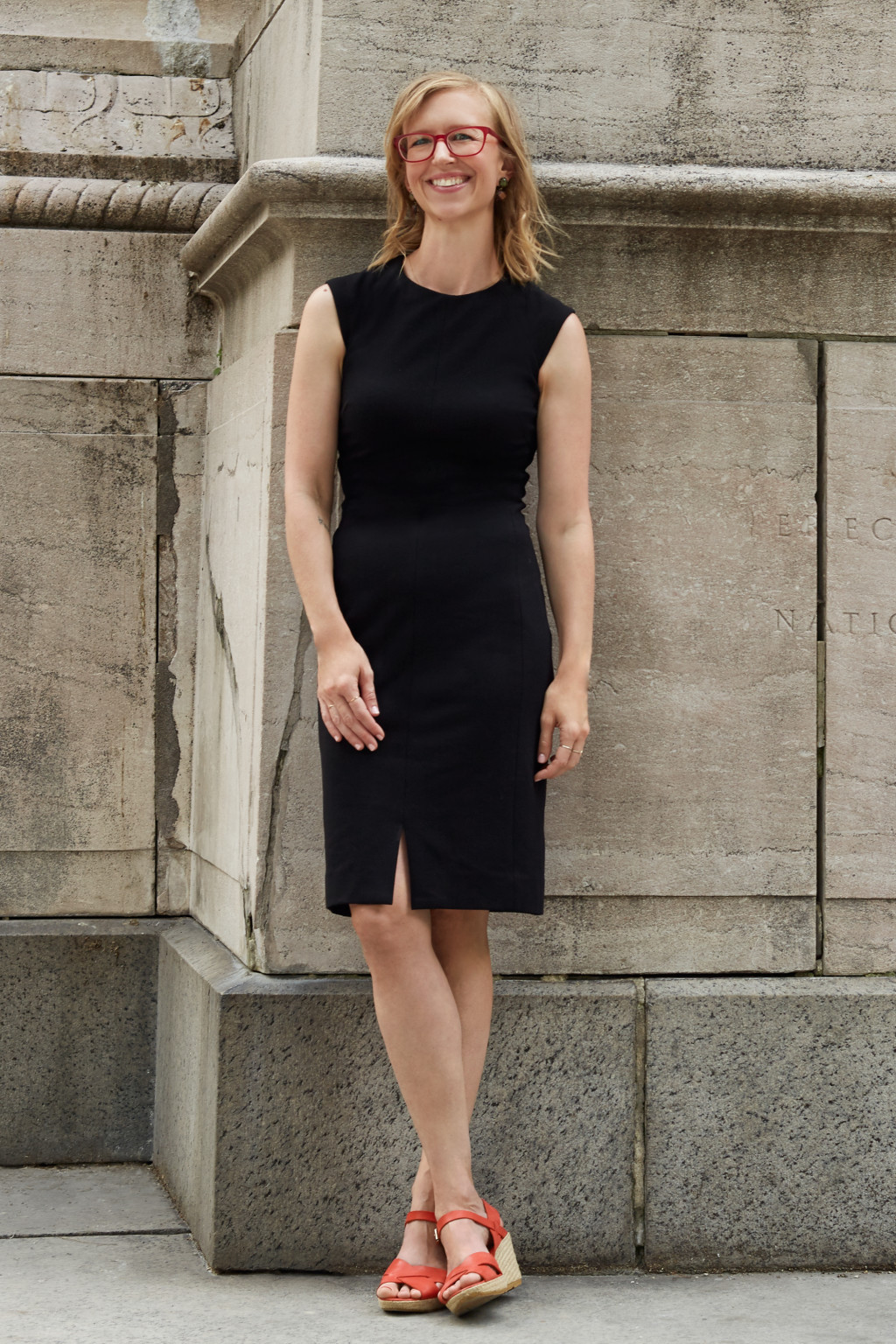
Mandy wears the Katie dress in black.
I WAS VERY CONCERNED about the book’s ending not being like, “I was in a bad relationship, and now I’m in a good one! I figured it out!” Because so often the happy endings to women’s stories are about how they find the person they’re going to spend their life with, and I didn’t want to reinforce the same narratives I was questioning. It was hard, because the raw material I’m working with is my actual life, so all the work I’ve done on this book has influenced my current romantic relationship in ways that are both obvious and hard to define. I can’t separate the writing of the book from the making of my relationship. The narrative arc of this book goes from this place of total confusion to a sense of authority, or at least agency, in love. But I don’t think about myself as an expert, though lots of people want me to be. There’s so much to learn, and the research is ongoing.
I WENT TO A TINY LIBERAL ARTS school for college, and majored in English. I also took as many creative writing classes as I could. Then I was terrified of getting a job—I thought, Ugh, that’s not for me, so I went straight to grad school. I don’t know if that was the best decision, in retrospect. It was fine, but I think I would have gotten a lot more out of an MFA if I had gone into it with a plan besides putting off entering the workforce for as long as I could.
I DIDN’T SET OUT TO BECOME A TEACHER, but my graduate program at Florida State would give you funding if you were willing to be a TA, so I started teaching at 22. I was completely in over my head, with these classrooms full of 18- and 19-year-olds. It wasn’t like I was running a Friday afternoon study session; I had to design the class and teach it by myself. We had six weeks of intensive training before we started, and then there I was, on day one of the semester, in my own classroom with 25 students. It was wild, and I loved it. Which is great, because I was really miserable otherwise. I was dating Kevin at the time, and he was in South America in the Peace Corps, and I was lonely; teaching was an escape from that.
MY DAD WAS A HIGH SCHOOL FOOTBALL COACH and later a high school principal; he modeled a certain kind of benevolent authority that I’ve tried to emulate, but it took a little time to feel like I wasn’t faking. I would always wear my glasses and dress up more than the other teachers when I first started out. I would have problems with young men, especially if they weren’t first year students. They would try and challenge me, and I had to stand up to them and be like, “No, I’m not going to change your grade.” I felt self-conscious, but I knew I couldn’t be meek. I was actually proud of getting my first negative reviews on student evaluations. My dad would always say, “It doesn’t matter if they like you as long as they respect you,” and I knew that if I got only positive evaluations, I was probably being too soft on the students.
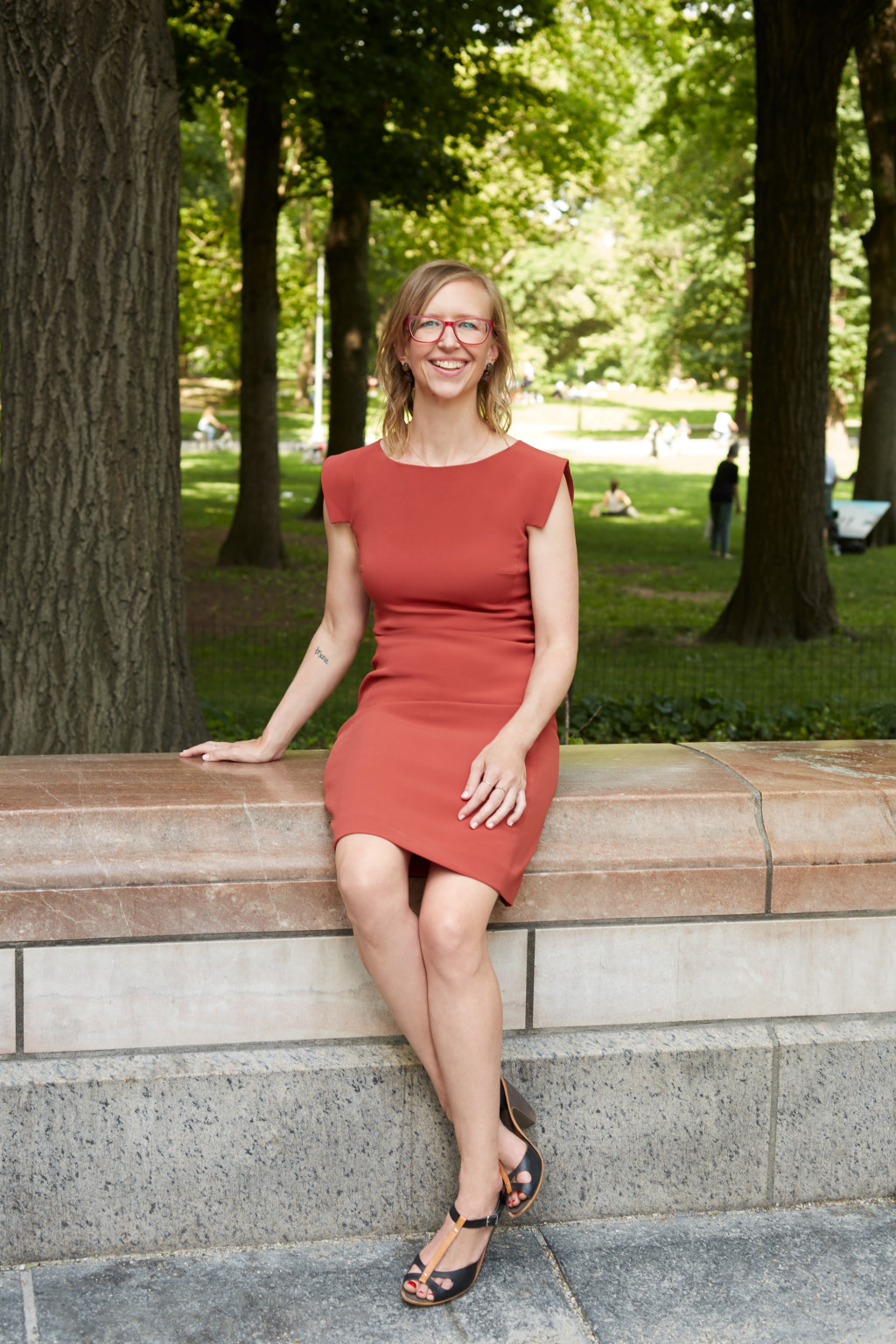
Mandy wears the Sarah 7.0 dress in chili flake.
I USED TO KEEP MY WRITING LIFE and my teaching life separate; that’s basically impossible at this point. Previously, I wrote everything under a pseudonym—Mandy Len, my first name and my middle name—which offered some privacy, mainly for my family. I was writing about them, and they knew that, but I wanted to just give them a little bit of space. But The New York Times doesn’t publish pseudonyms, and so that went out the window. Over the years, my parents—who are very private people—have come around to me doing this, and anytime I write about them I run it by them before I publish it. Still, there’s a lopsided amount of knowledge when I meet someone. I had lunch last week with this woman who writes for the Washington Post, and I was like, “My sister’s coming to pick us up,” and she was like, “Oh, Casey!” And I was like, “Oh, right. You know her name.” Then I was talking about my dog, and she was like, “Roscoe!” and I was like, “Oh, this is weird.”
SOMETIMES RANDOM PEOPLE will ask me about my personal life. Mark and I were at a party about a year and a half ago, and a friend’s friend had read the 36 questions article and was so excited to find out that it was us. She was like, “So, are you guys going to get married? Are you going to have kids?” And I was like, “Oh, I need to learn to answer this.” After my TED Talk came out, people started writing to me and asking what to do about some relationship dilemma. A good friend of mine is a clinical psychologist, and I went to him and said, “I’m not equipped to give these people advice, but obviously they need something; can you help me write a response that says you should talk to a professional?” And he did. I tried to respond to all of them, but eventually, I stopped. It just wasn’t a sustainable way to handle it. I felt so touched and moved by how vulnerable people were in their messages that it felt almost unkind to ignore them, and I wanted to reply with something. But I also don’t want to encourage people to send me emails for advice. Now, though, I started an advice column [on The Rumpus, called Mixed Feelings] so they can get in touch that way.
I ONCE SAW THIS INTERVIEW with Cheryl Strayed where she talked about how people come up to her and feel like they know her, and she’s like, “You have no idea who I am. I’ve only put a part of myself into my book.” But I actually feel like people who read my book are going to know a lot about me. [Laughs.] Still, the thing about writing a book is that you’re in control of the narrative, and I thought long and hard about everything that’s in there. I’m not an impulsive person at all. I thought about it every step along the way, and I thought about it when I was copy editing, and I thought about it when I was going through the proofs. Is everything in here something I’m really comfortable with? I do feel exposed, but in ways that I’ve chosen to be.
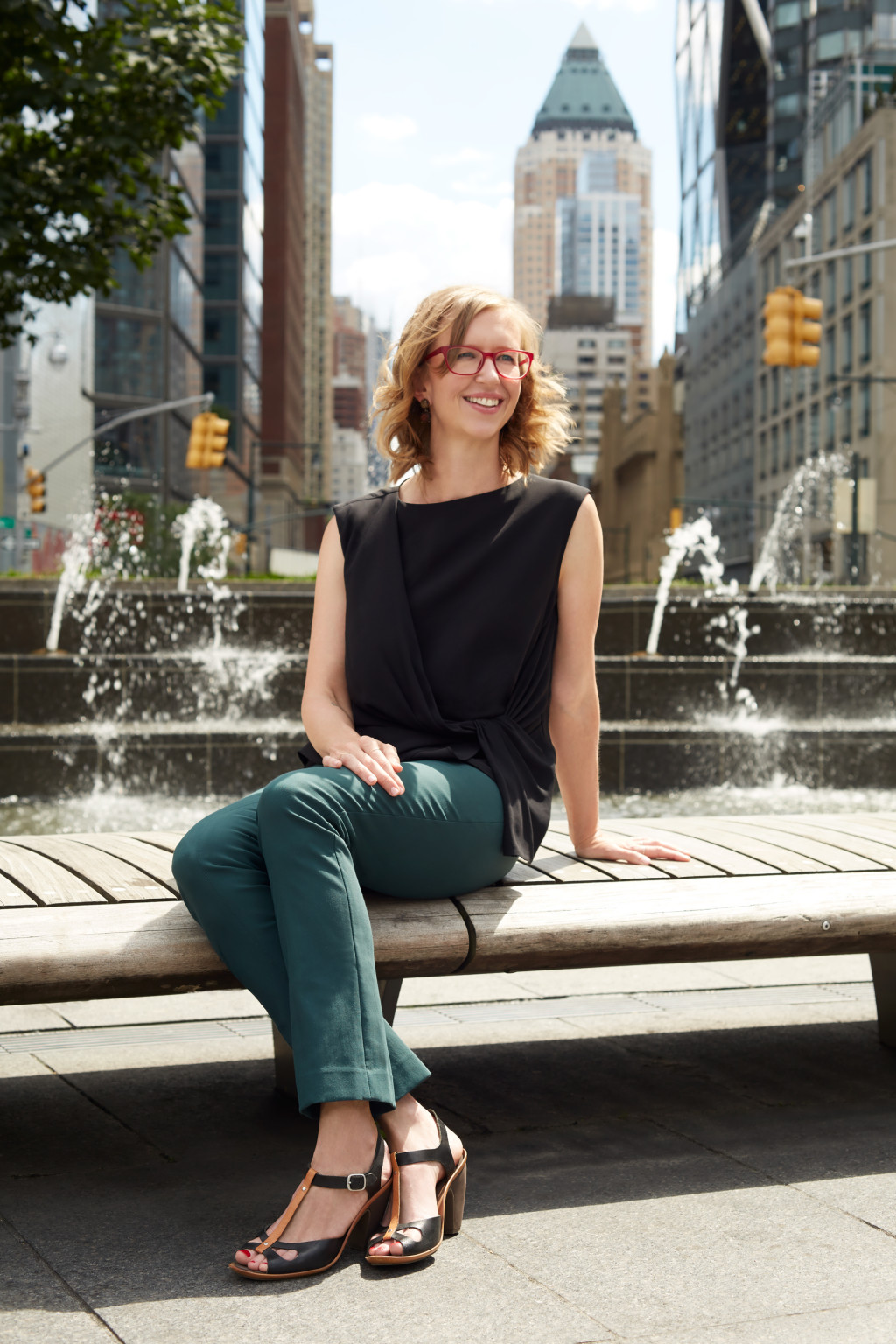
Mandy wears the Bronte top in black and the Foster pant in viridian.
IT IS A BIT STRANGE doing press for the book, because you aren’t in control of that narrative. The University of British Columbia does media training, which is so great, and one thing they taught me was how to avoid answering questions that make me uncomfortable. I have not had to use that technique yet, although there’s maybe one circumstance where I should have used it, but the truth is, I find interviews a lot more fun and interesting if I’m not trying to control them. And I’ve also just decided, fuck it. People are going to write what they’re going to write.
WHEN I WAS GETTING READY for this book tour, I had a moment of thinking, “Maybe I should get my hair highlighted, or buy new makeup or something,” but I ultimately didn’t. So much of my writing is about being genuine—or maybe that’s how I justified being lazy. I don’t have time to do all this crap. In general, I’m more comfortable not wearing a lot of makeup. I also don’t want to go on this tour feeling like I’m trying on a new persona. I want to go on this tour being me. People I encounter are already going to know a lot about me, so who cares. And that decision was such a relief. It makes more sense.
I DON’T WANT TO TALK about Kevin very much. He wanted me to change his name, which I was more than happy to do, but lots of people obviously know who he is, people we’re both close to. I am conscious of the fact that when you write about someone else, especially if you have a big platform, it’s very imbalanced. I’m sure that his version of our relationship would be totally different. I really made an effort to write about our relationship only in ways that helped me think through a particular idea I wanted to understand. I never wanted to disparage him, and I don’t think of the book as being about him, but I also think that if you want a reader to be interested in abstract ideas, you have to ground them in real experiences. So I really made an effort to write about it only insofar as it helped illustrate an idea that I was grappling with, personally. And to really interrogate myself, not him.
Photographs by Maria Karas.






